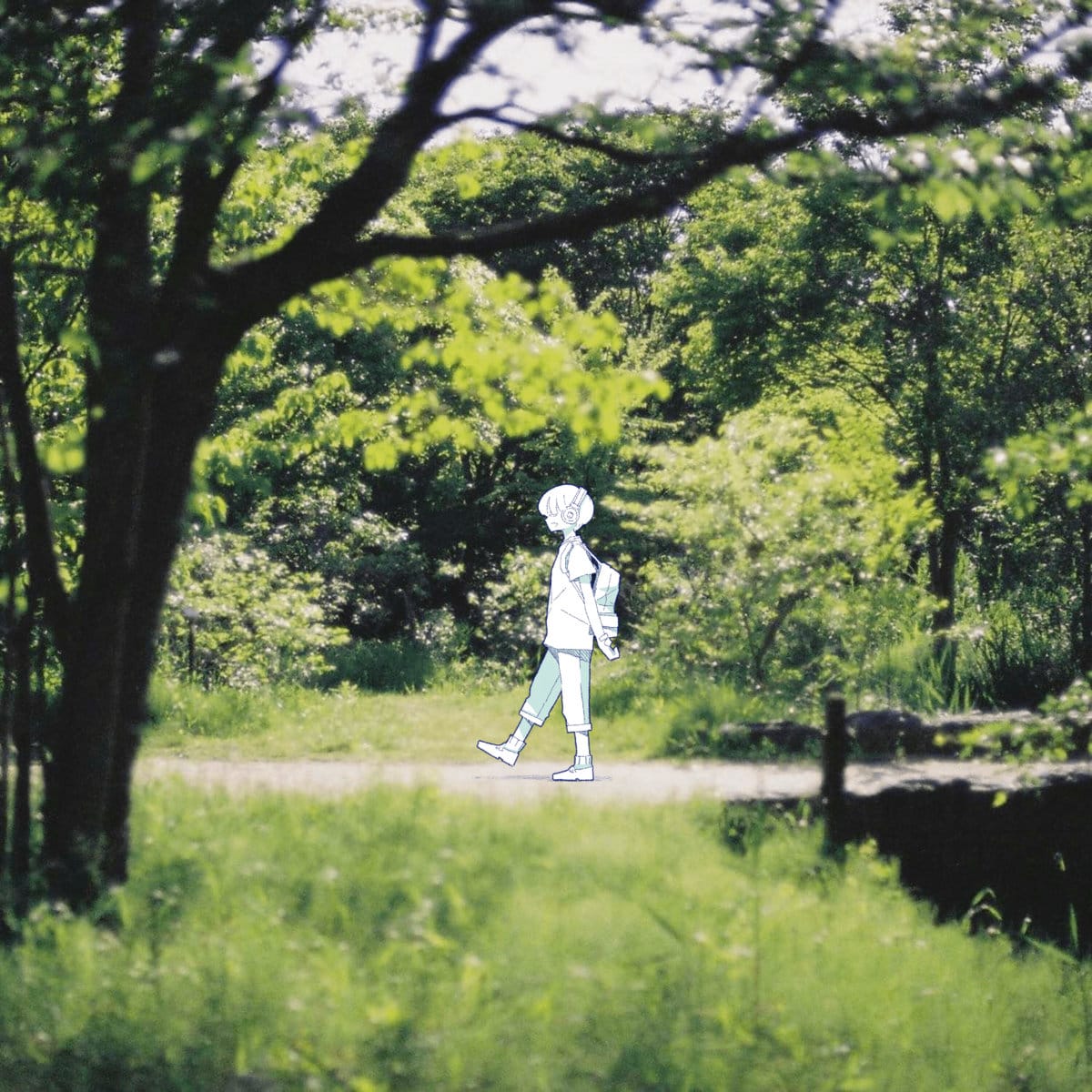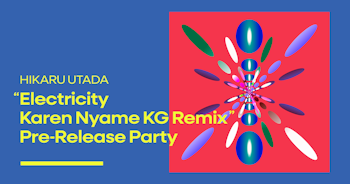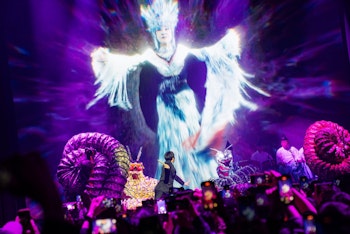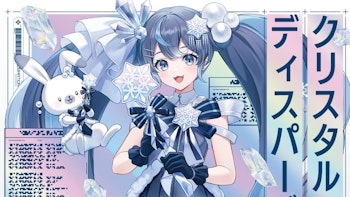
On the first Friday of every month, Bandcamp holds Bandcamp Friday. This event finds the digital music platform giving all revenue made from purchases over the 24 hours directly to artists. It’s a great day to support musicians using the site, many of whom operate independently and benefit greatly from direct purchases.
It’s also a fantastic time to catch up on new music, and in our case as a way to spotlight Japanese music just under the radar. Here’s some of our favorite Japanese releases on Bandcamp from the month of September.
Inu — Retype
Internet-centric music of the 2020s — you can call it “hyperpop” if you’d like, or wince at that once common name — has leaned towards the blown-out and chaotic. Chiba-based creator Inu plays with many of the fragmented parts of modern web sounds across Retype, but renders digital madness as something fragile and sweet. The tracks across the creator’s latest offer plenty of space, transforming familiar elements of the decade’s sonic palette into something subtle (see the Jersey Club percussive touches adding a gentle push to “p,” or the vocal jitters burbling up alongside piano notes on “summertime index”). It’s a sentimental listen using usually madcap noises, showing the depth they conceal…and a move that makes the moments of release such as closer “re: afteryouth” all the more euphoric. Get it here.
Robou No Ishi — Pater Noster
The Siren For Charlotte label stands as one of the most exciting sources for new sounds in Japan thanks to how the artists in its orbit reimagine the familiar. Central to this is a fascination with Vocaloid avatar Hatsune Miku, with a majority of releases on the imprint finding fresh angles on using the singing-synthesizer software. Here’s a fantastic example. The seven-songs on Pater Noster cast her digi-sing against varying shades of dramatic metal chug, from the darty pace of “Spirits” to the slow-burning theatrics of “prayer.”Everything melds just right, and Miku’s computer generated voice delivers an emotional punch when set alongside the force of the music. Get it here.
HYPER GAL — After Image
Osaka duo HYPER GAL dabble in the same experimental, noisy zone as fellow Kansai-region creators such as Afrirampo and the wonkier stylings of CASIO Turko Onsen. What sets them apart is a focus helping to corral the rougher elements into something pointed forward. It turns the songs on After Image hypnotic, and makes the instances where the pair do let loose dizzying. Get it here.
Various Artists — v.o.c EP 4
Japan’s footwork community remains vibrant, and this compilation offers a check in on how producers a world away from the frantic style’s birthplace of Chicago. Presented by the VibesOnlyCrew collective, this collection highlights the wide range of creativity being applied to the genre. You get traditionalists celebrating the chopped-up structure of it as it has existed for decades, all the way to experimental takes on it via long-running provocateurs Nature Danger Gang. Get it here.
Carpainter — What The What
Staying in the club, longrunning producer Carpainter’s latest for versatile dance label SPRAYBOX is a straight-ahead banger. The two songs on What The What provide pure kinetic bliss, moving quickly and aiming at getting bodies moving. Get it here.
computer fight — “Shinsotsu De Tenshi Ninarenakatta/Hunchback”
Tokyo’s computer fight is one of the most exciting examples of an underground movement playing out in the country recently. The trio play discombobulated, unpredictable guitar-based rock favoring the unexpected instead of structure. The two newest songs offer a wonderful introduction to its jagged style, marked by sing-speak vocals suddenly turning into shouts, all over a maelstrom of guitars and drums. Get it here.
Kazumichi Komatsu — Computer Music
At its best, Kazumichi Komatsu’s Computer Music sounds like it's disintegrating. The latest full-length from the producer formerly known as Madegg features simple melodies and vocal samples overlapping, repeated to a point where melodies start to warp and the experience transforms into something disorienting. Proper singing appears on a few tracks, but it’s the feeling of hearing these songs flake apart that leaves the most impact. Get it here.
maya ongaku — Electronic Phantoms
An exercise in creating grooves using a limited selection of instruments. Trio maya ongaku don’t have a permanent drummer, but recent touring revealed to the group the importance of getting folks moving to its music. How to square this? Turn to machines, with Electronic Phantoms being an experiment in seeing how a band previously more concerned with the spiritual side of its music embraced drum machines and software. It isn’t a floor-filling album, but rather one featuring easy-going rhythms colliding with maya ongaku’s ethereal sounds, and on songs such as “Love with Phantom” positioning themselves as heirs to Shintaro Sakamoto. Get it here.
sonotanotanpenz — Dance
Experimental pop duo sonotanotanpenz return with a set of songs crafted out of messy ingredients. The music on Dance ranges from distorted noise on opener “Omiyage” to playroom bells interrupted by jackhammers on “Yasashi Henshin” to piano sparseness on “ABCD.” Whatever form the sounds behind them take, sonotanotanpenz hop-scotch over it, sometimes by singing and other times approaching rap, helping to give Dance a playful energy. Get it here.
upusen — Strange parts shop
The latest set of synt-centered jams from producer upusen underline their greatest strength. Despite playing around with sounds that could easily become cheap nostalgia in the wrong hands, the tracks here avoid direct nods to the past, instead using vintage sounds as a way to create numbers perfectly suitable for the now. The key? A great sense of groove, that makes these four songs immediate even when built from the past. Get it here.
CRYSTAL — In A Cocktail Glass
Speaking of different perspectives on nostalgia, synth-pop duo CRYSTAL pay tribute to the shimmering sounds of ‘80s Japan without reducing it to a diorama on In A Cocktail Glass. Nodding to city pop via the glistening synths and general disco vibe, the group nods to its roots of being Yellow Magic Orchestra appreciators by weaving in elements of techno-pop from the period, along with a handful of modern touches. Get it here.
babababa featuring Hatsune Miku — Miku Brasileira
As exhausting as the modern social media landscape can be, it’s important to cherish the moments when these networks that otherwise ruin our days give us something beautiful. Like Brazilian Miku. Originally just a piece of fanart by thecat_mitsu on X, this drawing of a Brazil-ified Hatsune Miku inspired riffs on the drawing while also inspiring people from around the world to imagine the character as repping their home nation or region (think “Norwegian Miku,” “Midwest Miku,” “Balinese Miku”). It was one of those wholesome online phenomena where creativity gets sparked that are becoming rarer.
The spirit of Brazilian Miku carries on via Japanese label New Masterpiece. Artist babababa already created one track inspired by the drawing, and has returned with “Miku Brasileira,” an ‘80s-style disco cut finding the voice of Miku bouncing between Japanese and Portuguese. The release also comes with remixes of babababa’s previous Miku number, and a swifter interpretation of the title cut. Fitting, given the central importance of remixing and expanding ideas at the center of this one. Get it here.










